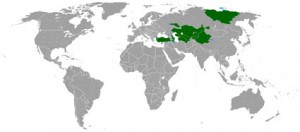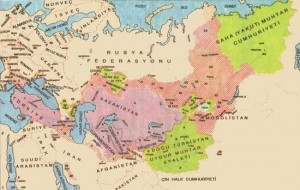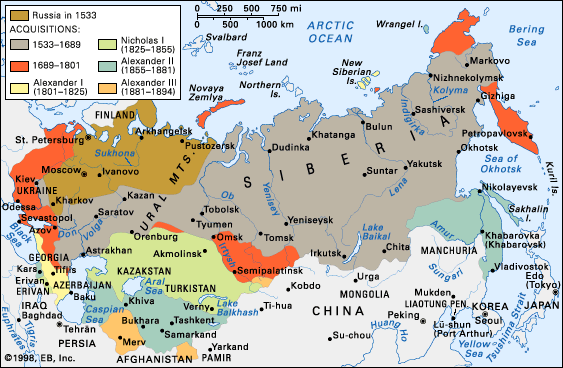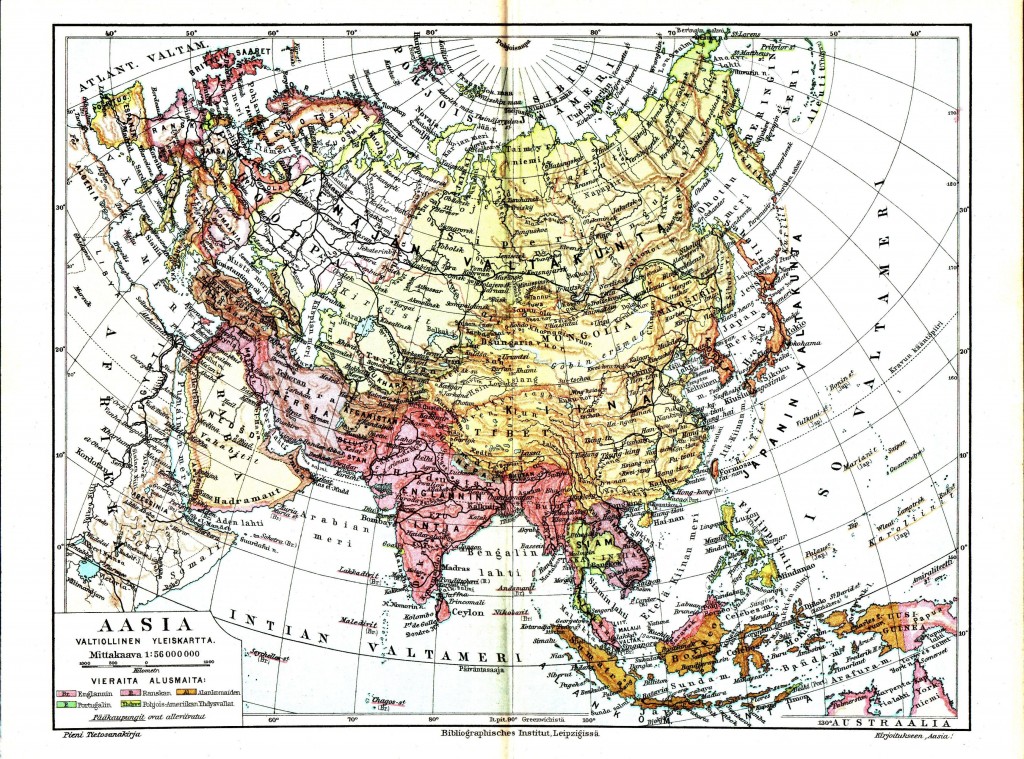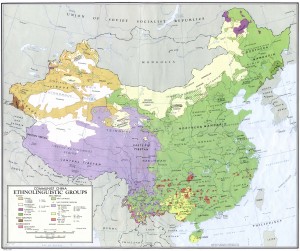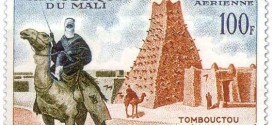When talking about ‘Turks’, one usually means the people of Turkey. This seems a natural reference for a country called Turkey. However, the modern state of Turkey is not very old. It was only established in 1923 as the successor state of the Ottoman Empire. During the Ottoman Sultanate period, the inhabitants of this political entity were not necessarily ethnically Turkish. The Ottoman Empire was multiethnic, not nationalistic. Arabs, Slavs, Kurds, Greeks, Armenians and others lived together under the same rule as the Turks.
By the end of the 19th century, European nationalism was growing steadily and the major European empires were beginning to crumble. The dissolution of these empires began with the Austrian Empire, which sparked nationalism in the Ottoman Sultanate. The Greeks and Arabs mainly received support from Great Britain, one of the world powers at the time. Who doesn’t know the stories of Lawrence of Arabia or Lord Byron, who was a romantic zealot for Greek independence? The Ottomans came under huge pressure and lost a lot of their territories. Had it not been for Mustafa Kemal Atatürk, who won the strategic Battle of Gallipoli, the Ottoman Empire would have dissolved completely without leaving a major successor state. In short, the Ottomans came under great pressure from nationalism, and the once fierce empire quickly shrank into different national states, with Turkey emerging as its main successor. Let us consider the name ‘Turkey’ itself. It shows that this rump state has a nationalistic background. There is nothing left of the multiethnic Ottoman state. Interestingly, Turkey is still a multiethnic country. After the collapse of the empire, many non-Turkish Muslims fled the newly created national states with Christian majorities (e.g. Greece or Serbia), where they were considered Turkish mainly because of their religion. These people were not Turkish, but Serbian, Greek, Bulgarian, Bosnian, Georgian and so on, and they settled in what is now Turkey. Last but not least, it should be noted that the population of the remaining Turkish state was not ethnically homogeneous. At the beginning of the last century, there were significant ethnic minorities, such as Kurds, Arabs and Greeks. However, the name ‘Turkey’ implies that it is now the land of the Turks. This, of course, has a lot of explosive power because, as we have shown, Turkey is not a purely Turkic country, but a multiethnic nation.
Turkey as a Turkic nation
Turkey is considered a Turkic country because its founder wanted it to be similar to the new nationalistic countries in the West. If we consider German nationalism, we might understand the kind of nationalism that the new forces in the newly formed Turkey were aiming for. The Germans wanted to build a nation with a purely Germanic culture. This led them to focus solely on Germanic traditions. All other cultural influences on Germany were suppressed (e.g. Celtic, Roman, Jewish or Slavonic). The Germans longed to be purely ‘Aryan’ and, in time, came to worship this Aryan cult. Similar considerations were made in the formation of the new Turkey with regard to Pan-Turkism (also called Turanism), although it never reached the same level as in Germany. Of course, one should take into consideration that the emerging nationalism was not the intention of all political forces. However, in those difficult times, it was accepted by the majority of people with influence over state affairs.
Alongside this recent nationalism came a new awareness of other Turkic peoples living outside the traditional borders of the Ottoman Empire.
Pan-Turkism – Turanism
Looking at the above map, it is easy to see that Turkic peoples are settled over a vast region, extending deep into the far corners of Siberia. As Ottoman influence weakened and the empire gradually dissolved, the idea of a new nationalistic empire encompassing mainly Turkic peoples became very attractive, and so-called Pan-Turkism was born. “Turan” is the motherland of all Turkic peoples, and the term “Turanism” is a synonym for Pan-Turkism.
However, political realism forced the nationalistic forces to step back from their ambitions in order to attract pan-Turkism. Having just escaped cancellation as an independent state, the newly born Turkey could not afford to create new tensions with Russia. Most Turkic peoples lived outside Turkey, primarily in Russia and later the USSR, so any Turkic nationalist movement in these regions would naturally have provoked the Russians, and later the Soviets, into action.
Following the fall of the Iron Curtain and dissolution of the USSR, the situation changed, and continues to do so. Countries such as Kazakhstan, Azerbaijan and Uzbekistan still need to establish their position in the world and overcome their Soviet heritage. Sooner or later, they may realise that they are part of a large Turkic family totalling over 170 million people, making them a significant ethnic and linguistic group worldwide. This group will certainly remember in the future that they have a lot in common, and may therefore wish to stand together as one in a political union similar to the European Union.
Fear of Turkic nationalism
One implication of such Turkic nationalism is that it causes fear for the two superpowers, Russia and China. Russia has lost a lot of influence in its former Soviet republics and will certainly not be happy if a new nationalist movement emerges in Central Asia and Siberia. It is not only about political influence, but also about who controls an area with huge natural resource reserves. The indigenous Siberian peoples, in particular, receive only a small share of the region’s natural resources, such as oil and gas.
The situation in China is similar, but somehow worse. As a multiethnic nation itself, the People’s Republic of China has always been fighting separatist tendencies, primarily the Tibetan Independence Movement. The same is also true of another important ethnic minority in China: the Turkic Uyghurs in their ancestral lands of Xinjiang (also known as Sinkiang).
The Uyghurs are increasingly oppressed by the central government, and it seems that they are heading towards the same fate as the Tibetans. It is quite possible that the Chinese authorities will take extreme measures to prevent an Uyghur independence movement, such as promoting Turkic nationalism.
Conclusion
Turkish nationalism began when the Ottoman Empire collapsed and the Turkish state was formed. Turkey itself is a multiethnic country and has a strong rival in the form of Russia. These two factors hindered the spread of Turkic nationalism. However, with the fall of the Iron Curtain, the situation changed, and many Soviet republics with Turkic majorities became independent. These nations still have to fight for their place in the world, and one possible solution is to join forces with another Turkic country. However, it must be acknowledged that such movements will not go unnoticed. States such as China might not only observe these movements, but also interfere militarily, as they do in Xinjiang (Sinkiang).
 Dorsum – The Ethnopolitcal Blog Worldwide Ethnopolitical Analyses
Dorsum – The Ethnopolitcal Blog Worldwide Ethnopolitical Analyses
